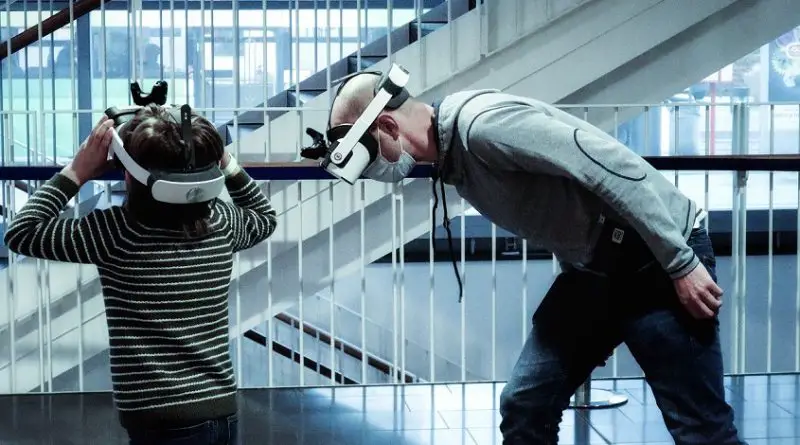How to Become a Virtual Reality Coach?
Becoming a virtual reality coach involves understanding the ethical considerations of client confidentiality, informed consent, and potential power dynamics. Best practices include setting boundaries, managing expectations, and adapting to new technologies and trends.
Virtual reality coaching is a cutting-edge field that harnesses the power of virtual reality technology to help individuals and organizations achieve their goals. As the virtual world continues to expand, the demand for virtual reality coaches is on the rise. These professionals provide guidance and support to clients in a variety of areas, such as gaming, health and wellness, and business applications.
The benefits of virtual reality coaching are numerous. For individuals, virtual reality coaching offers a unique and immersive learning experience that can help to improve performance, build confidence, and enhance critical thinking skills. Organizations can benefit from virtual reality coaching by increasing productivity, reducing risk, and improving safety in the workplace. In addition, virtual reality coaching provides a highly personalized and flexible approach to coaching that can be adapted to meet the unique needs of each client.
Necessary Skills and Qualifications
To become an effective virtual reality coach, there are a number of core competencies that are necessary. These include:
- A deep understanding of virtual reality technology, including how to use and troubleshoot VR hardware and software.
- Strong communication skills, including the ability to explain complex concepts in a clear and concise way and to tailor communication to different types of learners.
- An understanding of coaching best practices and methodologies, as well as a willingness to adapt these practices to the unique challenges and opportunities presented by virtual reality.
- An ability to build rapport with clients and establish a safe and trusting environment in which to work.
- A passion for helping others succeed and achieve their goals within the virtual world.
A variety of education and training programs can help aspiring virtual reality coaches develop these competencies. Degree programs in fields such as psychology, education, or computer science can provide a strong foundation in the relevant knowledge and skills, while certifications or workshops focused specifically on virtual reality coaching can offer more targeted training.
Specialization and Niche
Specializing in a niche area is a crucial element for a virtual reality coach to be successful in the industry. By doing so, coaches can leverage their unique skills, knowledge, and experience to provide targeted coaching services to their clients. Here are some potential niches within virtual reality coaching that are worth exploring:
- Gaming: With the rise of esports and the increasing popularity of gaming, virtual reality coaches can provide services to help gamers improve their skills and performance. They can also help gamers manage their mental health and well-being by teaching them coping strategies and mindfulness techniques.
- Health and Wellness: Virtual reality coaches can provide coaching services to individuals looking to improve their health and wellness, such as helping them overcome anxiety and stress, manage chronic pain, or improve their physical fitness. The immersive nature of virtual reality can make it a powerful tool for promoting positive lifestyle changes.
- Business Applications: Virtual reality coaching can also be applied to the business world, where coaches can provide services to help professionals develop leadership skills, improve teamwork, and enhance communication. They can also help employees adapt to new technologies and work processes, which is becoming increasingly important in today’s fast-paced and ever-changing workplace.
Building a Business
Developing a Business Plan
- Research and analyze the virtual reality coaching industry, identifying the target market, competition, and potential clients
- Determine the types of virtual reality coaching services to offer, such as coaching for gaming, health and wellness, or business applications
- Develop a marketing strategy and pricing model that is based on the target audience and the unique value proposition of the coaching services
Building a Client Base
- Utilize social media and other online platforms to market virtual reality coaching services and connect with potential clients
- Leverage professional networks to expand reach and create opportunities for referrals
- Participate in industry events and conferences to network and showcase coaching services
Marketing Services
- Develop a brand identity and message that effectively communicates the value of virtual reality coaching services
- Utilize search engine optimization (SEO) and digital marketing techniques to increase visibility and attract potential clients
- Utilize targeted advertising campaigns on platforms such as Facebook and LinkedIn to reach the desired audience
Virtual Reality Coaching Tools and Technologies
- Utilize a range of virtual reality tools and technologies, such as VR headsets and software, to provide high-quality coaching services
- Consider the use of communication platforms such as Zoom or Discord to provide coaching services remotely
- Stay up-to-date on emerging virtual reality technologies and trends to remain competitive and provide clients with the latest and most effective tools and techniques.
Ethics and Best Practices
Virtual reality coaching is a rapidly growing field, with exciting potential for helping people overcome challenges and achieve their goals in a highly immersive and engaging way. However, as with any form of coaching, it is important to consider the ethical considerations and best practices involved in providing these services.
Here are some key ethical considerations for virtual reality coaches to keep in mind:
- Confidentiality: Just like with any coaching or counseling service, it is important for virtual reality coaches to maintain client confidentiality. This includes protecting sensitive information, such as personal or medical details, and ensuring that clients feel safe and supported in their virtual coaching sessions.
- Informed consent: Virtual reality coaches should ensure that their clients understand the nature of the coaching process and have given informed consent to participate. This includes being transparent about the potential benefits and risks of using virtual reality technology for coaching, as well as providing clients with the opportunity to ask questions and express any concerns.
- Power dynamics: Virtual reality coaches should be aware of potential power dynamics that may arise in their coaching relationships. For example, clients may be more vulnerable in a virtual reality setting, or may feel pressure to conform to the expectations of their coach. It is important for coaches to create a safe and supportive environment, and to avoid any behavior or language that could be perceived as manipulative or exploitative.
In addition to these ethical considerations, there are also several best practices that virtual reality coaches can follow to ensure they are providing high-quality and effective coaching services:
- Setting boundaries: Virtual reality coaches should establish clear boundaries around the coaching relationship, including the types of issues they are willing and able to work with, the duration of coaching sessions, and the expectations for follow-up and feedback.
- Managing expectations: Virtual reality coaches should be transparent with their clients about what they can and cannot achieve through coaching. This includes setting realistic goals and helping clients understand the limitations of the technology and the coaching process.
- Adapting to new technologies and trends: Virtual reality coaching is an evolving field, and coaches should be prepared to adapt to new technologies and trends as they emerge. This includes staying up-to-date with the latest research and developments in the field, as well as experimenting with new coaching techniques and tools.




